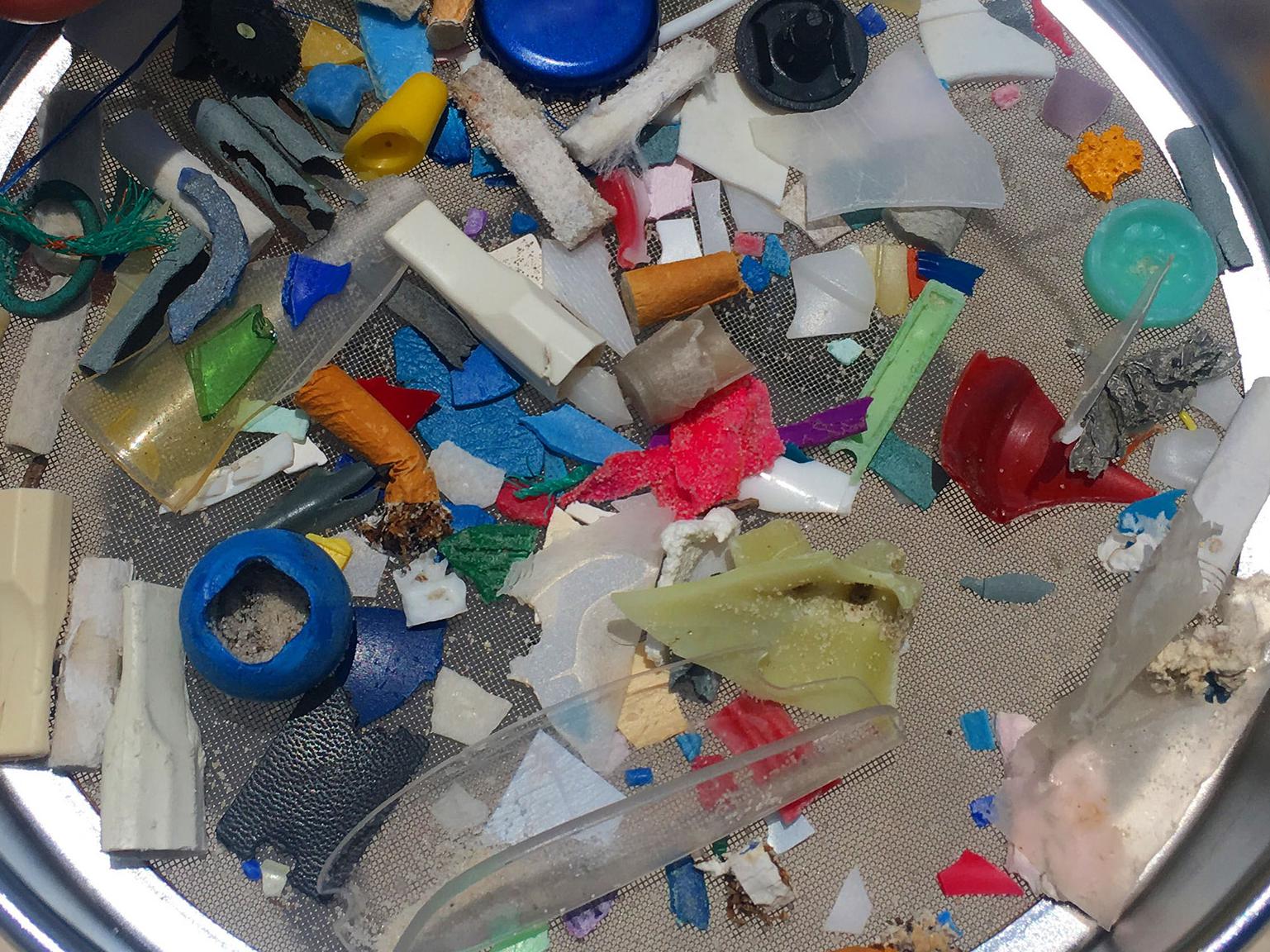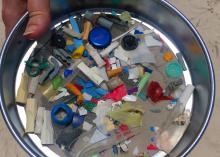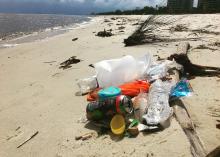Information Possibly Outdated
The information presented on this page was originally released on June 29, 2018. It may not be outdated, but please search our site for more current information. If you plan to quote or reference this information in a publication, please check with the Extension specialist or author before proceeding.
Protect environment by reducing plastics
BILOXI, Miss. -- Marine debris, largely composed of discarded plastic products, is one of the most alarming issues facing the world’s seas today.
Plastics have the advantages of being cheap, lightweight, durable and easy to make. Unfortunately, single-use plastics often serve their intended purposes in a matter of seconds before they enter the endless stream of waste humans generate.
Of all the plastic ever produced, only 9 percent has been recycled. Unrecycled plastic ends up in landfills or in our environment because of poor waste management. Over time, with the influence of wave action and ultraviolet radiation, plastics break into smaller and smaller pieces that we call “microplastics.”
Microplastics can become highly toxic when hazardous chemicals latch onto them, and they are small enough to be ingested by animals. Effects of toxic microplastics on animals are still being determined. We need to know what kind of microplastics are in the ocean, how much is out there and where they are coming from.
Mississippi State University is leading a project to get an idea of the distribution of microplastics in the northern Gulf of Mexico. The Gulf of Mexico Alliances’ Gulf Star Program funded this project in 2017, and the study will continue until the end of 2018. MSU and partners -- located from Corpus Christi, Texas, to Key Largo, Florida -- are gathering data to give us a snapshot of microplastic abundance in the coastal waters of the Gulf of Mexico.
To participate or review the data from this project, refer to this interactive map (http://coastal.msstate.edu/microplastics/).
Consider ways you can prevent the marine debris problem from escalating. One good habit is to refuse single-use plastic. Bring your own reusable coffee cup when you get your morning coffee, or politely tell the restaurant server that you don’t need a straw.
Another way to help is to get involved with local cleanup events. This year, the Mississippi Coastal Cleanup Program is celebrating its 30th anniversary. The 2018 Mississippi Coastal Cleanup will take place Oct. 20.
In addition to the annual event, the Mississippi Coastal Cleanup Program is hosting its first July 5 Beach Cleanup this summer. Independence Day celebrations leave our coastal environment littered with fireworks debris. Small remnants of fireworks are found across the beaches and can eventually end up in the ocean, polluting and contaminating the water. These debris pieces can also be mistaken for food by the local wildlife, threatening their health and well-being. It is estimated that at least one-third of all seabird species eat marine debris.
To register for the July 5 Beach Cleanup or the annual event in October, see the Mississippi Coastal Cleanup webpage (http://coastalcleanup.extension.msstate.edu/).

Editor’s Note: Extension Outdoors is a column authored by several different experts in the Mississippi State University Extension Service.
Released: June 29, 2018
Contacts: Ms. Amanda Nicole Rigsby
News Story Contact
Related News
June 19, 2020
January 7, 2020
November 12, 2019
November 1, 2019
October 10, 2019
Pages
Related Publications
Publication Number: P3356
Publication Number: P3369
Publication Number: P3357
Publication Number: P3724
Publication Number: P3706





